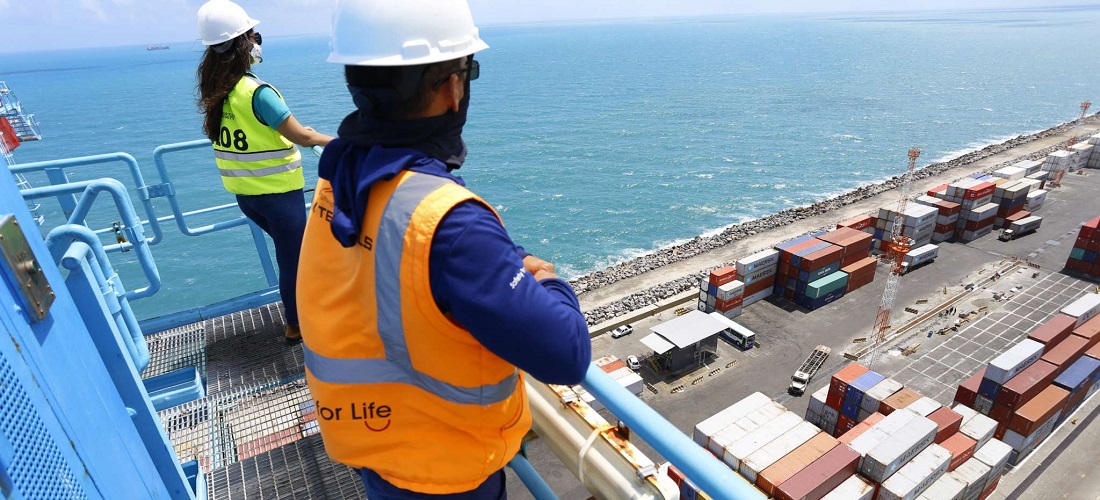
Solid bulk accounted for 49% of cargo handled by Pecém in 2020
Jan, 13, 2021 Posted by Ruth HollardWeek 202102
Cast iron, salt, products from the milling industry, fruits, minerals, cereals, and aluminum were the cargoes most shipped by the Port of Pecém in 2020. In all, 5,324,440 tons were shipped last year, an increase of 2% in this movement compared to 2019 (5,212,141 tons). In December 2020 alone, shipments totaled 535,775 tons, an amount 14% higher than that shipped in December 2019 (469,290 tons). Altogether, between shipments and landings, 1,472,355 tons were handled in the last month of last year. “This increase may seem little, but it represents a lot in the face of this very difficult 2020. It was a year that demanded a lot from the team from the very beginning; it demanded a lot from all of us professionals at Complexo do Pecém. We adapted to continue with all our operations. And even with the pandemic, we did not stop our activities for a single day”, emphasizes Danilo Serpa, President of Complexo do Pecém (CIPP S/A).
And it was also the pandemic that directly affected last year’s accumulated movement. The year 2020 closed with a total of 15,930,483 tons handled at the Pecém Port Terminal, a result 12% below the same period in 2019 (18,096,308 tons). “In the first half of 2020, we expected a possible downturn. Pecém is a port-industry, and we are an industrial and port complex with customers who suffered and, in a way, still suffer from the pandemic. Some closed factories or suspended activities. But it is a fact that at the end of last year we started to feel an increase in handling”, concludes Danilo.
The nature of cargo handled in 2020 was 49% Solid bulk – with 7,761,958 tons handled; 30% Containers – with 4,818,581 tons handled; 20% Loose cargo – with 3,122,245 tons handled; 1% Other – with 227,700 tons handled.
Types of Navigation
Cabotage: cabotage navigation totaled 9,015,621 tons. In landings, the main products handled were ores (3,090,416 tons); cereals (402,270 tons); cast iron (242,762 tons); aluminum and derivatives (95,899 tons) etc. Cabotage shipments, on the other hand, the main products handled were salt (374,487 tons); cast iron (169,004 tons); products from the milling industry (139,561 tons); cereals (98,306 tons); aluminum and derivatives (96,160 tons); and plastics and derivatives (43,206 tons).
Long Haul: Long haul shipping totaled 6,914,862 tons. In long-haul landings, the main products handled were mineral fuels (2,759,759 tons); cast iron (60,567 tons); fertilizers (43,084 tons); and cereals (8,452 tons). Regarding long-haul shipments, the highlights were seen in the handling of cast iron (1,815,880 tons); fruits (107,613 tons); ores (104,744 tons); machines (39,541 tons); and vegetable preparations (34,130 tons).
Pecém is a multi-cargo terminal for handling solid bulk, liquid bulk, containers, and cargo in general in the 10 berths it owns. That is why it is considered a Port Hub – today connected by seven coastal lines and three long-haul lines. In addition, the second expansion of the Ceará port terminal should soon be inaugurated. A new mooring berth (Berth 10), a second pier access bridge (Bridge 2), and a second access gate (Gate 2) to the terminal will be opened. All of these works will be officially delivered in the year that marks the 19th year of operation of Porto do Pecém.
Related Post
-
Grains
Aug, 22, 2019
0
Study forecasts 3.6% increase in grain production in the country
-
Ports and Terminals
Feb, 02, 2023
0
The future of the santos port waiting for definition on destatization
-
Trade Regulations
Sep, 09, 2020
0
MEXICO OVERTAKES BRAZIL AS LARGEST ORANGE JUICE EXPORTER TO USA
-
Grains
Dec, 30, 2022
0
December line-up reveals 1,715 mln tonnes of soybeans shipped from Brazil



